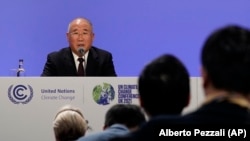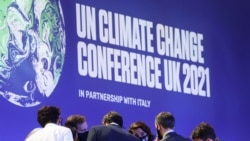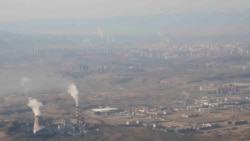On November 2, Xie Zhenhua, China’s special envoy on climate change, was asked about China’s recent string of power plant shutdowns, triggered by record-high coal prices, and whether they could accelerate plans to invest in renewable energy sources.
Starting in late September, electricity shortages swept across half of China’s provinces, forcing factories, stores and households to ration electricity and in some cases causing blackouts.
Xie, then attending the COP26 climate summit in Glasgow, Scotland, said the shortages were a result of coal-fired power plants reducing electricity supplies.
He added that as the price of coal rose because of China’s post-pandemic economic recovery, electricity prices remained unchanged due to government policy. As a result, many coal-fired power plants produced less electricity to avoid losing money.
That is all true. But then Xie said:
“If you look at the story (China’s power shortage) from another perspective, it's a reflection of Chinese effort and seriousness to adjust our energy structure and limit the use of coal. These problems may be associated with some one-size-for-all policy adopted by the local government, but actually, I think it also can be regarded as a reflection of our seriousness and determination to apply more renewable energy and reduce the consumption of coal.”
That is false. In fact, China has been ramping up coal production to address the power shortages.
According to data released on November 16 by the National Bureau of Statistics of China, the country produced 360 million tons of coal in October, a six-year record high. It did so despite having promised at COP26 to phase down coal and phase out the use of all fossil fuels. The world leaders at COP26 billed a new climate deal as the “death knell” for coal power.
China, which already produces and burns more coal than all other countries combined, ordered coal mines to produce 220 million metric tons of extra coal a year to reverse the shortages.
China’s National Development and Reform Commission demanded that all coal mines increase output as much as possible in the final quarter of 2021 and prohibited coal mines from being shut down.
China has also increased coal imports and approved new coal projects, purchasing 26.9 million tons of coal in October, up 96.2% from a year ago, according to Wind Information, a Chinese financial data and information company. Citing Greenpeace, Reuters reported in late August that China’s provinces planned new coal projects producing over 100 gigawatts of energy.
“The immediate cause [of the electricity crisis] is that China is still highly dependent on coal,” wrote Lauri Myllyvirta, lead analyst at the Center for Research on Energy and Clean Air (CREA). Coal-fired power plants account for more than 70% of electricity generation in China.
“Efforts to reduce coal *demand* would not lead to a shortage of *supply*,” Myllyvirta tweeted in response to Xie’s attempt to reframe the power crunch.
China’s coal shortage was caused by its government’s efforts to boost energy-intensive industries to recover from the COVID-19 economic contraction, said Myllyvirta. Those efforts included mandating low electricity prices despite the surge in coal prices.
Despite Beijing’s boast of a “green recovery,” energy-intensive construction and heavy industry have played an outsized role in China’s initial economic recovery, sparking an 11% increase in demand for coal during the first half of 2021. Growing global demand for Chinese goods further intensified electricity demands in the world’s largest manufacturing hub.
Myllyvirta noted the role of Chinese market intervention. “Regulated power prices are intended to shield electricity users from price risks — a subsidy that comes at the expense of those who generate the power,” he wrote.
“As I keep emphasizing, pro-coal interests in China have been extremely successful in spinning the false narrative that the coal and power shortage was caused by climate or clean energy policies, even if facts and logic show otherwise.”
As nations negotiated the Glasgow Climate Pact at the close of COP26 on November 13, delegates from China and India made a last-minute demand to water down language on reducing coal use, insisting that the wording “phase out unabated coal” be changed to “phase down unabated coal.”
Alok Sharma, president of COP26, said the following day that both countries “are going to have to explain themselves to the most climate vulnerable countries in the world.”







